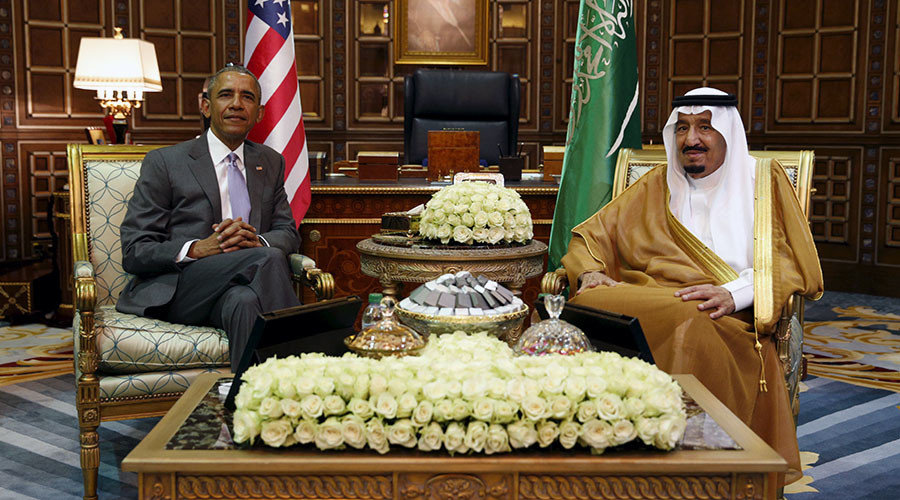Saudi lobby does not shape U.S. Middle East policy: expert

TEHRAN - A professor of international business and international affairs at George Washington University is insistent that “the Saudi lobby does NOT shape U.S. foreign policy towards the Middle East.”
Hossein Askari tells the Tehran Times that the Saudi lobby “only and narrowly supports Saudi policies where there is very limited fallout.”
Askari who served as special advisor to Saudi finance minister says “the Saudi lobby maybe effective on many issues but not in issues where Israel’s or U.S. national interests are at stake.”
Following is the full text of the interview:
Q: How powerful is the Saudi lobby in the United States?
A: The Saudi lobbying effort in the U.S. goes back many years, in my opinion to the late 1960s. After the 1967 war and especially after the 1973 war, the Arabs realized that they had to start lobbying in the United States to counteract the Israeli lobby. It became as clear as daylight that the U.S. would do anything and everything to support Israel because of the strength of the Israeli lobby. So the Saudis got a late start.
The Saudis did not have much experience. They started with one well-connected American lawyer who orchestrated their efforts. He engaged on a retainer basis some powerful U.S. lobbyists and lobbying firms. They set up U.S.-Saudi Joint Economic Commissions to increase high-level interactions between U.S. and Saudi business leaders as another indirect lobbying effort. They helped establish The National Council on U.S.-Arab Relations and are working on a GCC Office in Washington DC. They have donated millions of dollars to U.S. universities and charity organizations. They have retained former U.S. politicians with very generous contracts in an advisory capacity, but are intended for high level lobbying. The list of these efforts is long, but it is still has a long way to go before it could match the Israeli lobby on issues of importance to Israel. The Jewish lobby has been at it far longer, they have spent much more money, and most importantly the vast majority of American Jews are committed to the protection of Israel and are willing to act, whereas Arab Americans do not share the same affinity and commitment for Saudi Arabia.
Because of what I have said, I would say that the Saudi lobby maybe effective on many issues but not in issues where Israel’s or U.S. national interests are at stake.
Saudi Arabia did all that it could (and even with Israeli support) to stop the nuclear agreement of the P5+1 with Iran. It failed.
Q: On what issues can Saudi Arabia make lobbies?
A: The Saudi lobby can be successful in business issues. It can shape some U.S. policies towards Saudi Arabia—not criticize the Al-Sauds publicly, approve business transactions and arms sales that do not threaten Israel, share intelligence, support the Al-Sauds from domestic and regional threats, support Saudi interests in international forums, support Saudi Arabia in disputes with all countries in the region with the exception of Israel.
Q: How effective is this lobby in shaping the U.S. foreign policy toward the Middle East?
A: Again, it should be obvious from what I have said, that the Saudi lobby is ineffective when it comes to U.S.-Israeli relations and U.S. national interests. In this regard, I believe that when the interests of important American groups, such as the victims of the 9/11 attacks, the Saudi lobby is totally powerless. No American president or politician would back Saudi interests against groups that may have been adversely affected by Saudi actions or inactions. But when you look at it more broadly, I would say that over the years the image of Saudi Arabia in the U.S. has deteriorated—human rights abuses, autocratic rule, the lavish lifestyle of the Al-Sauds and their sexual exploits and the fact that all but two of the 9/11 hijackers were Saudis. All of this has made Saudi Arabia and the Al-Sauds increasingly unpopular in the U.S. The result is that the Saudi lobby is on the defensive. The Saudi lobby does NOT shape U.S. foreign policy towards the Middle East. It only and narrowly supports Saudi policies where there is very limited fallout. Let me give you example of the recent past and two forthcoming issues.
“Over the years the image of Saudi Arabia in the U.S. has deteriorated — human rights abuses, autocratic rule, the lavish lifestyle of the Al-Sauds and their sexual exploits and the fact that all but two of the 9/11 hijackers were Saudis.Saudi Arabia did all that it could (and even with Israeli support) to stop the nuclear agreement of the P5+1 with Iran. It failed. It has tried to stop the U.S. Congress from releasing the famous 28 pages of the 9/11 Commission that apparently contains damaging information about Saudi involvement. I believe these will be released. It has lobbied against attempts to revoke Saudi Arabia’s immunity in U.S. courts and allow the family of 9/11victims sue Saudi Arabia in U.S. courts; lawsuits that some predict could top $1 trillion!! President Obama has threatened to veto such legislation, but I believe that the veto would be easily overridden by both houses of Congress. Again, I believe the Saudi lobby will fail.
Q: Has lobbying with the U.S. Congress and administration been effective when it comes issues of human rights in the Saudi kingdom?
A: Not at all. I believe that things are changing in the U.S. (for any President and Congress). Going forward the U.S. will be more and more reluctant to support regimes with such glaring human rights and governance abuses.
JH/PA
Leave a Comment